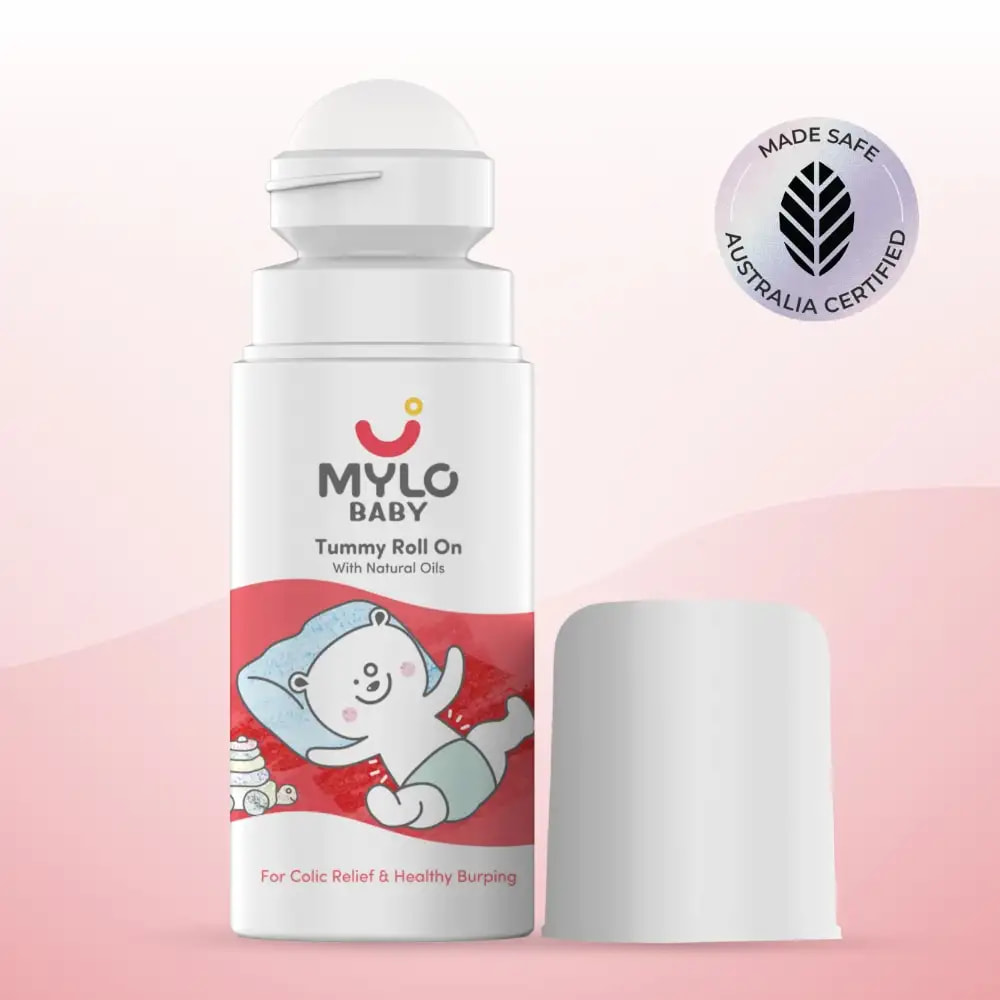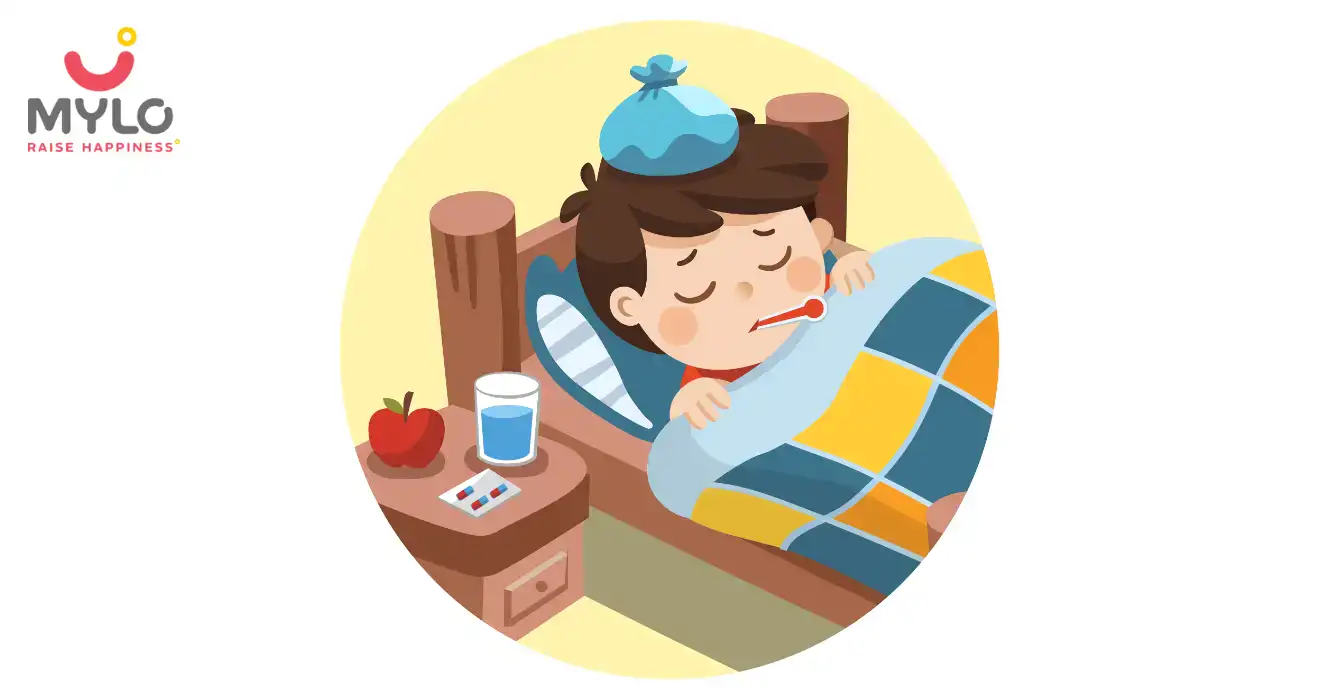Home

Care for Baby

Colic: Meaning, Causes & Treatment
In this Article

Care for Baby
Colic: Meaning, Causes & Treatment
Updated on 18 April 2023
Around 1 in 4 newborns are said to have infant colic. Colic is a condition that causes excessive crying and discomfort in babies, making it a frustrating and stressful experience for both parents and baby. But it is often misunderstood, and many parents are unsure of colic meaning, its causes and treatment.
In this article, we will explore the meaning of colic, the possible causes, and various treatment options available. We hope to provide a better understanding of this condition, and help parents find relief for their little ones.
What is Colic?
Colic is excessive and intense crying in a healthy baby for no obvious reason. It can be extremely distressing for parents because their baby cries for hours at end and no amount of consoling seems to relieve them. Colic pain is most common during the first six weeks after birth and declines on its own by the time your baby turns 3 to 4 months-old.
Infant colic is identified when your baby’s crying
- Lasts longer than 3 hours a day
- Occurs more than 3 days a week
- And continues for more than 3 weeks.
Click here for a natural & effective way to get rid of baby's colic!
Symptoms of Colic
Babies are known to fuss and cry, especially during the first few weeks after birth. But colicky pain or crying is different; it’s louder, high-pitched and more urgent than regular crying. A baby with colic usually cries in the evening, from 6 pm to midnight and can be very tough to calm or soothe.
A colic baby may present the following symptoms:
- Extreme fussiness
- Frequent burping and passing of gas
- Facial discolouring, such as having a red (flushed) face
- Body tension, such as clenched fists, back arching, stiffened arms & legs, tight belly
You may also like: Newborn Crying: What It Means and How to Handle It?
Causes of Colic
While the exact cause of colic pain is unknown, it may arise because of some contributing factors:
- Immature digestive tract
- Food allergies such as milk allergy or sensitivity to formula milk
- Overfeeding or underfeeding
- Choking of passage
- Lack of healthy bacteria in the digestive tract
You may also like: Signs Your Baby Has Gas And How To Treat It
Complications of Colic
Although infant colic does not cause any long-term medical problems for your baby, it can be very stressful for parents. According to research, the following complications may arise because of colicky pain:
- Increased frustration and stress among parents with a colic baby
- Loss of sleep in both parents and baby
- Early cessation of breastfeeding
- Higher risk of postpartum depression in mothers
You may also like: Best Home Remedies to Treat & Manage Your Baby's Colic
Risk Factors
The risk factors of infant colic have not yet been fully understood. But according to some studies, women who smoked during their pregnancy or after delivery have a higher chance of giving birth to a baby with colic. Research suggests that factors such as family history, allergy symptoms, duration of breastfeeding or the age of introduction of cow milk to the baby are not associated with the occurrence of colic in babies.
Treatment of Colic
No parent can bear to see their baby in colic pain. So here are some simple remedies to help soothe your baby:
1. Hing (asafoetida) Massage
Hing or asafoetida is a spice that is commonly used in traditional Indian cooking. Besides elevating taste, it also possesses antiseptic and antibacterial properties. Hing helps to treat stomach problems, indigestion, and irritable bowel syndrome. It has been used since time immemorial to cure colic pain.
How to use: You can mix a pinch of hing in lukewarm water and dip a cotton ball in it. Now, massage it on your baby’s tummy in a clockwise direction. Avoid touching the baby’s navel.
2. Fennel Oil
Fennel or saunf is another common kitchen ingredient found in most homes. It is known to relieve gas, relax the intestines and eliminate discomfort in the digestive tract. All of these properties make it a great way to relieve colic in babies.
How to use: You can massage your baby’s tummy with a few drops of fennel oil.
3. Swaddling
One of the best ways to calm a colicky pain is to swaddle your baby. Even if your baby resists swaddling, he/she will feel extremely secure once inside the swaddle. You should continue swaddling your baby for the first few weeks after birth.
How to use: Wrap your baby snugly in a swaddle and see the difference in some time.
4. Peppermint Oil
Peppermint or pudina lends a very refreshing taste to food and is known for its antispasmodic properties. Peppermint oil is considered to be another effective remedy for treating infant colic.
How to use: Mix peppermint oil with a few drops of coconut oil and massage on the baby’s tummy to give a cooling effect.
5. Warm Bath
There’s almost nothing a warm bath can’t help cure. You can bathe your baby with warm water to soothe your baby's colic. Warm water helps to ease the pain and provides relief to your little one.
How to use: Fill a small tub with warm water and allow your baby to sit in it for a little while. In the winter, you may just put a washcloth dipped in warm water on your baby’s tummy to prevent him/her from catching a cold.
You can also use a tummy roll on to soothe your baby's colicky pain. A tummy roll-on is specially formulated with soothing ingredients such as hing, fennel and asafoetida to provide relief to your little one.
You may also like: Are Tummy Roll-Ons Effective in Treating Colic in Babies?
Closing Thoughts
Infant colic can be a challenging condition for both parents and babies to deal with. However, it's important to remember that it's a common and temporary condition that will eventually pass. There are various treatment options available, that can provide relief for both the baby and parents. It's important to consult with a healthcare professional for proper diagnosis and treatment. With patience, support, and understanding, parents can help their babies through this difficult period and ensure their well-being.

Tummy Roll On For Baby - 40 ml
Made Safe Australia Certified | Relieves Gas & Colic | Promotes Healthy Burping | Reduces Acid Reflux | 40 ml
₹ 199

4.4
(8595)


71101 Users bought



Written by
Ishmeet Kaur
Ishmeet is an experienced content writer with a demonstrated history of working in the internet industry. She is skilled in Editing, Public Speaking, Blogging, Creative Writing, and Social Media.
Read MoreGet baby's diet chart, and growth tips

Related Articles
RECENTLY PUBLISHED ARTICLES
our most recent articles

Fever
Effective Ways to Treat Jaundice in Children: Expert Tips for a Speedy Recovery

Fun & Humour
10 Best Original Movies to Watch on Netflix

Symptoms & Illnesses
Flu, Change of Season or New Covid Variant, XBB.1.16- What’s Causing These Symptoms?

5 Ways In Which Music Can Boost Your Baby's Brain Development

Hiccups
How to Stop Baby Hiccups: Everything You Need to Know
topics
“Staying Active and Healthy: The Benefits of Safe Exercise During Pregnancy”
- Appendicitis In Pregnancy Symptoms, Diagnosis & Surgery
- 5 Common Myths Busted About Baby Sleep
- “Ectopic Pregnancy: All You Need to Know About This Complication”
- Importance of Typhoid vaccines
- Benefits of eating nuts
- Can One Induce Labor Naturally?
- Should One Consider Keeping Their Pregnancy A Lowkey News?
- Destination decide
- After delivery pregnancy
- Mylo....
- Meri folecular study hui hai mujhe last 10, 12 din drest halka halka pain ho raha tha but kal band ho gaya kya ye period ka lakshan hai ya fir pregnancy ka
- cute baby
- Blessings
- Summer hacks that makes up your skin healthy


AWARDS AND RECOGNITION

Mylo wins Forbes D2C Disruptor award

Mylo wins The Economic Times Promising Brands 2022
AS SEEN IN

- Mylo Care: Effective and science-backed personal care and wellness solutions for a joyful you.
- Mylo Baby: Science-backed, gentle and effective personal care & hygiene range for your little one.
- Mylo Community: Trusted and empathetic community of 10mn+ parents and experts.
Product Categories
baby carrier | baby soap | baby wipes | stretch marks cream | baby cream | baby shampoo | baby massage oil | baby hair oil | stretch marks oil | baby body wash | baby powder | baby lotion | diaper rash cream | newborn diapers | teether | baby kajal | baby diapers | cloth diapers |








